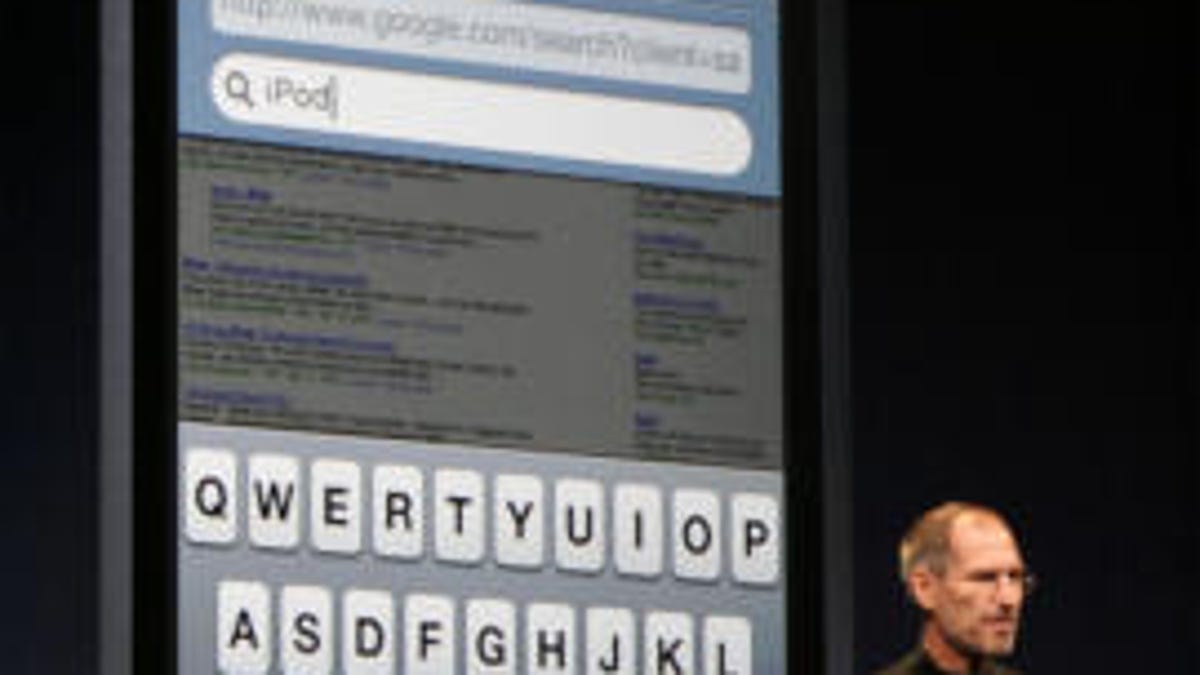Another Apple and AT&T debacle in the works?
While some coffee fanatics believe the Apple-Starbucks deal is the greatest announcement since the iPod itself, one has to wonder whether there are implications for AT&T.

With most of the focus being placed on new iPods, much of my focus (yes, I watched it) was on the Starbucks deal.
And while some coffee fanatics believe this is the greatest announcement since the iPod itself, I'm left wondering if there are some implications for AT&T.
Considering every wireless-equipped Starbucks in the nation is using T-Mobile's services and that same company is an AT&T competitor, how much can AT&T like the announcement made today that the iPod Touch and, more importantly, the iPhone will be able to connect to the Starbucks Wi-Fi? I think AT&T is upset.
Some may say that an iPhone that's capable of connecting to a Wi-Fi connection in the home is just as annoying to AT&T as an iPhone connected to a T-Mobile wireless network, but I disagree. Every time you access the Starbucks wireless connection, the familiar T-Mobile logo is displayed. Some may ignore it, but rest assured, AT&T will not.
As GSM carriers, it's in T-Mobile and AT&T's best interest to stay as far away from each other as possible. Sure, both companies compete against Verizon and Sprint, but more than anyone else, their first competition is each other. Why you ask? Because anyone can swap a SIM card from one carrier to another and pay that respective company for service. That's not possible with an iPhone, but it doesn't stop people from getting to know the competition.
In business, the last thing you want to do is allow your competitors to gain a foothold on your products. In other words, if you were Ford's CEO, would you really want a Chevrolet logo placed on the steering wheel? The person may ignore it and drive that car for another 100,000 miles, which is fine with you. But on the other hand, the car owner may look into Chevy cars and make a decision on which company would suit them best. Chances are, that would mean significant lost revenue.
Now, don't try to say that iPhone owners can't change carriers like cars because with a hacking community in full-gear, a simple and ubiquitous software unlock may create a mass exodus of people from the AT&T service.
There will probably be very little impact on AT&T users in the next year just because Starbucks will be rolling out this new service over a few years. But once it hits a significant amount of markets (probably within the next six months to a year), it will coincide with that simple iPhone unlock I've been telling you about and will create an upheaval in GSM land.
Some may say AT&T is much better than T-Mobile and no one will switch carriers. Others will say T-Mobile is better and we should all switch as soon as possible. Regardless, everyone has their preference and if AT&T should be judged by its past, it wouldn't surprise me if former T-Mobile users already have their sights set on their old carrier.
Apple's decision to sign up with Starbucks may seem innocent and I assure you that AT&T never came in to the conversation during the deal. But in some odd way, AT&T is supporting T-Mobile. Just imagine the day when you go into Starbucks for an espresso, sit down to read the news on your iPhone, and switch off of the EDGE network and on to a T-Mobile wireless connection that's exponentially faster. Even better, look up in the top left corner and read off that name for me. Does it match the name of the company on the Starbucks wireless start-up screen?
For AT&T to be truly hurt by this move, a perfect storm, of sorts, would need to emerge. First, the iPhone needs an easy and ubiquitous unlocking procedure that any user can perform. Next, six months to a year must pass so Starbucks can install the iPhone infrastructure in each of its stores in major cities. From there, all people need to do is look at the T-Mobile logo.
It may sound a little far-fetched and I can understand your skepticism, but we are quite close to a reliable iPhone unlock that may become well-known, the iPhone infrastructure is definitely coming sooner rather than later, and it wouldn't surprise me if T-Mobile asks for some extra space to promote itself when you use your iPhone at Starbucks.
The writing is on the wall. Call it subliminal advertising or don't call it advertising at all, but there is a reason why AT&T would never want to put a T-Mobile logo on any of its products.
Now, let's sit back and watch this storm emerge.

